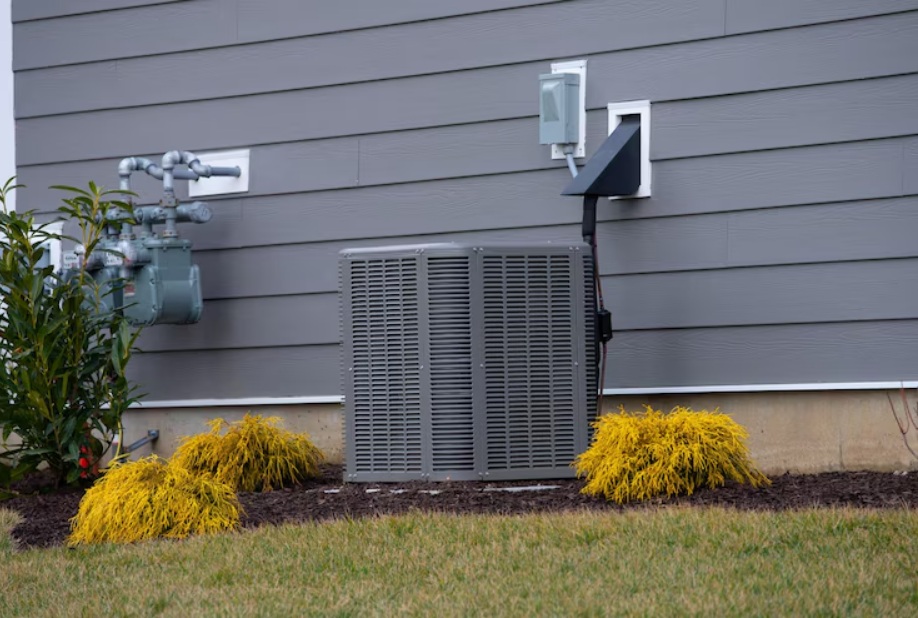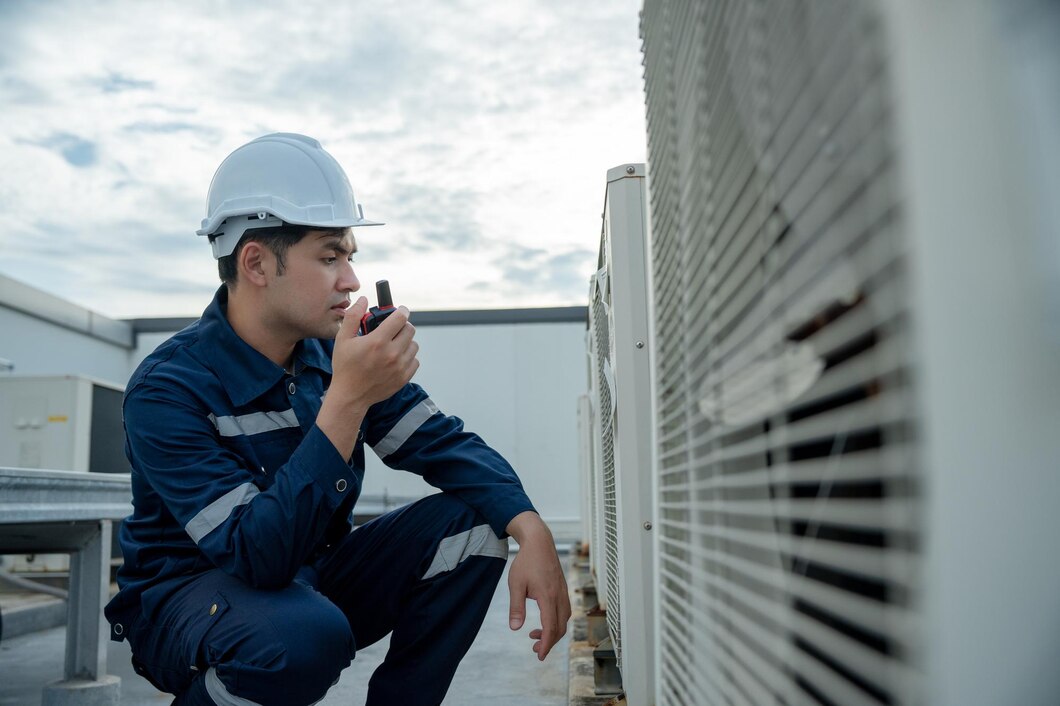Air conditioning is more than a comfort feature during the long summers in Pelham. It is part of what keeps your home livable and protects your family from heat and humidity. The outdoor unit plays a big role in this, working hard to release heat pulled from inside the home. When that part of the system starts making strange noises, it quickly turns into a concern that homeowners should not overlook.
Unusual sounds coming from an AC unit outside can mean several things, none of which should be ignored. What starts off as a small rattle or squeal can turn into costly damage if it goes unchecked. Many homeowners in Pelham may not know what normal sounds are compared to ones that need attention. Recognizing which noises are a signal for professional repair can help avoid a breakdown during peak summer temperatures.
Common Causes Of Unusual AC Noises
Outdoor AC units are exposed to harsh weather and regular wear through months of operation. Over time, it is normal for parts to shift or wear down. But not all changes in sound should be dismissed. Here are a few common reasons an outdoor AC unit might start making noises that catch your attention:
– Loose or damaged parts: Bolts, screws, and other fasteners can loosen over time due to vibration. When this happens, components inside the unit may bang into each other during use. Fan blades or panels can also become damaged, creating repetitive noises.
– Refrigerant leaks: A hissing or bubbling sound may point to a refrigerant issue. This could mean the refrigerant is escaping through a crack or hole, which reduces system performance and puts strain on the compressor.
– Debris or obstructions: Leaves, twigs, or even small animals can find their way inside outdoor units. When debris blocks moving parts, it can cause grinding or rattling sounds. Obstructions can also stop the fan from spinning properly, which limits airflow and increases internal pressure.
– Fan or motor issues: Problems like worn-out bearings, misaligned blades, or a failing condenser fan motor often show up as screeching, squealing, or humming noises. These sounds typically mean the motor is working harder than it should or beginning to fail.
One homeowner in Pelham noticed a loud clanking noise every time their AC kicked on. After calling for service, it turned out the mounting bracket had loosened, letting the fan hit the side housing. Catching it in time prevented major motor damage.
Understanding where these noises come from can help narrow down the problem early. When left alone, issues that begin as simple wear and tear can quickly affect how well the system cools or how long it lasts. Not every sound is cause for panic, but ongoing or worsening noise should always be a reason to take a closer look.
What Different Noises Might Indicate in Your Outdoor AC Unit
Recognizing different sounds your outdoor AC unit makes can be a helpful first step in deciding what actions to take, especially during the hotter months in Pelham when AC use is at its highest. Each unusual sound is often linked to a specific issue in the system.
– Rattling or banging: These sounds often point to something loose inside the unit. It could be a bolt or panel that has come undone, or it could be an object that has fallen inside the casing. If untreated, the movement can create further damage over time.
– Hissing or bubbling: These noises usually suggest a refrigerant leak. Hissing may come from a small leak, while bubbling may happen if moisture or air has entered the line. Both reduce cooling efficiency and put strain on the compressor.
– Screeching or squealing: These sounds are often tied to fan or motor problems. A worn-out fan belt or bad motor bearings could be causing the unit to run loudly. These issues tend to get worse the longer you run the system.
– Clicking: If you hear a repetitive clicking noise when the unit starts or stops, it could indicate trouble with electrical components like the capacitor or control board. This should not be ignored, as small issues with electrical parts can lead to full breakdowns.
Each type of sound provides a clue into what might be wrong. Understanding them can help you avoid guessing and focus on contacting the right professionals when something does not sound right.
What to Do When Your AC Unit Makes Unusual Noises
When strange sounds come from your outdoor AC unit, the best action you can take is to stop using it until it is looked at. Running the system while something is clearly off may cause damage that could be more costly to fix or even require full part replacements. Here are a few safe first steps you can take:
1. Turn off the system using the thermostat or shutoff switch. Do this as soon as you hear something that does not sound normal. This reduces the chance of further harm to internal components.
2. Inspect the outdoor unit for visible obstructions. If you can clearly see leaves, sticks, or anything out of place without removing any part of the cover, note it for your technician. Do not attempt to open the unit.
3. Check the surrounding area. Pets, tree branches, or lawn tools can sometimes end up too close to the unit, affecting how it runs.
4. Do not attempt a repair. Without the right tools and training, trying to fix the noise yourself can make matters worse. Many components involve electricity or pressurized chemicals that require professional handling.
Even if the system seems to cool normally for now, running it when it is making noise is not recommended. Catching an issue early gives you a chance to correct it before it turns into a more serious or expensive problem.
Why Expert AC Repair Matters
Getting a professional involved is not just about hearing less noise. It is about fixing the root cause of the sound and making sure your system is safe and efficient. Technicians who understand how AC units function will do a full inspection beyond the affected part. They look at refrigerant levels, electrical wiring, belt tension, motor function, and airflow. This type of evaluation is necessary if you want the unit to keep operating during peak temperatures.
Some problems need specialized tools or knowledge, especially electrical checks or refrigerant repairs. With the correct handling, these components can be brought back into working condition or replaced before more parts get affected. In some cases, what starts as a hissing noise can become a full system shutdown if a refrigerant leak burns out the compressor.
On top of repairs, professionals can advise you about ongoing maintenance to help prevent noise problems in the future. Not all issues are preventable, but cleaning the unit, checking parts for wear, and running seasonal inspections go a long way toward keeping your AC system dependable year after year.
Protecting Your Comfort and AC Longevity
Pelham homeowners rely heavily on their AC system during summer, so anything outside normal operation deserves attention. Noises are one of the system’s earliest warning signs that something is wrong. Whether it is a clicking from faulty wiring or squealing from a fan motor, acting early helps prevent system failure and keeps your home comfortable.
Ignoring these signs for too long increases the chances your unit will wear out faster than expected. It also often leads to higher repair expenses and more time without cool air. Taking quick, informed action when something sounds off guards your comfort now and your budget later.
Peace of mind comes from knowing your system has been safely repaired and checked by professionals. When you handle AC noise issues early, you are giving your equipment the chance to last longer and run smoother through the season. For families in Pelham, it means fewer interruptions and more dependable cooling during the hottest time of year.
If unusual AC noises disrupt your comfort in Pelham, our professionals at Standard Heating, Cooling & Plumbing are ready to help address the problem early and prevent further damage. With our trusted AC repair in Pelham, you can ensure your system is properly inspected, diagnosed, and restored for reliable cooling throughout the season. For a quick estimate or to book a service visit, please contact us today.











